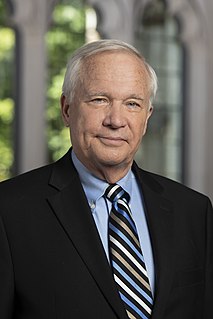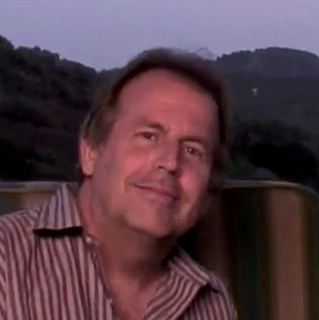A Quote by John Tukey
In rating ease of description as very important, we are essentially asserting a belief in quantitative knowledge - a belief that most of the key questions in our world sooner or later demand answers to 'by how much?' rather than merely to 'in which direction?'
Related Quotes
All of us cherish our beliefs. They are, to a degree, self-defining. When someone comes along who challenges our belief system as insufficiently well-based - or who, like Socrates, merely asks embarrassing questions that we haven't thought of, or demonstrates that we've swept key underlying assumptions under the rug - it becomes much more than a search for knowledge. It feels like a personal assault.
We did not choose to believe that personal choice is the highest human virtue. Rather, we were taught, formed, forced to believe nothing is important in life other than that which we have personally chosen. The irony is that the belief that nothing is important in life other than that which we have personally chosen is a belief that we have not personally chosen! The supermarket and shopping mall have been our school.
I shall not convert you at the end of my argument. I think the argument is sound. I hold that belief in God is not merely as reasonable as other belief, or even a little or infinitely more probably true than other belief; I hold rather that unless you believe in God you can logically believe in nothing else.
Until the content of a belief is made clear, the appeal to accept the belief on faith is beside the point, for one would not know what one has accepted. The request for the meaning of a religious belief is logically prior to the question of accepting that belief on faith or to the question of whether that belief constitutes knowledge.
If you have a belief and you come against an experience which the belief says is not possible, or, the experience is such that you have to drop the belief, what are you going to choose — the belief or the experience? The tendency of the mind is to choose the belief, to forget about the experience. That’s how you have been missing many opportunities when God has knocked at your door.
Well, part of it is a longstanding belief - it's been in our education establishment at least since the 1930s - that somehow children should be allowed to discover knowledge for themselves, that they should construct their own knowledge. This has surfaced most recently in connection with mathematics instruction, where the idea is that they need to discover how to add for themselves. Rather than being taught how to add, they should construct this knowledge on their own.
Sooner or later, the ones who told you that this isn't the way it's done, the ones who found time to sneer, they will find someone else to hassle. Sooner or later, they stop pointing out how much hubris you've got, how you're not entitled to make a new thing, how you will certainly come to regret your choices. Sooner or later, your work speaks for itself. Outlasting the critics feels like it will take a very long time, but you're more patient than they are.
The ability to help others gain insights seems very important to me, and I think one of the most effective, but most difficult, ways is to listen sympathetically when people seem to be saying stupid things or thinking in confused ways. Rather than write them off, we can try to diagnose what is wrong with their thinking - what flawed belief they might be holding. And then search for ways that enables them to discover the flawed belief for themselves.
Human beings are compelled to adopt a belief system; some paradigm to provide meaning, purpose, and understanding to our lives. A quick survey of the world shows that pretty much any idea will do - it need not reflect reality or truth, merely function to fascinate, distract, and compel. We are designed for belief, not for truth.
Disease is the misery of our belief, happiness is the health of our wisdom, so that man's happiness or misery depends on himself. Now, as our misery comes from our belief, and not from the thing believed, it is necessary to be on the watch, so as not to be deceived by false guides. Sensation contains no intelligence or belief, but is a mere disturbance of the matter, called agitation, which produces mind, and is ready to receive the seed of error. Ever since man was created, there has been an element called error which has been busy inventing answers for every sensation.
I start ... from a belief in individual freedom and that derives fundamentally from a belief in the limitations of our knowledge, from a belief ... that nobody can be sure that what he believes is right, is really right ... I'm an imperfect human being who cannot be certain of anything, so what position ... involved the least intolerance on my part? ... The most attractive position ... is putting individual freedom first.



































